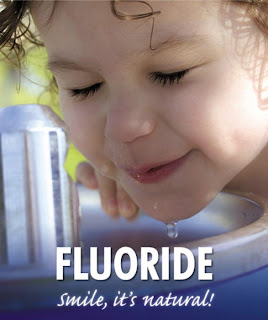There's no need to wait until your baby actually has teeth to lay the foundations for good oral or general health. In fact, good nutrition and oral hygiene can start right away. It is up to you to develop the routines that will help protect your child from tooth decay and other oral health problems. So let's get started!
1) Start Proper Oral Hygiene Habits ASAP
When your baby's teeth begin to erupt, brush them gently with a small, soft-bristled toothbrush using no more than a thin smear of fluoridated toothpaste.
3) Teach Your Children
When your child turns 2, you can begin to teach your child proper brushing techniques with no more than a pea-sized amount of fluoridated toothpaste. You should follow up their efforts by gently brushing the teeth again. Modeling correct technique is important. When your child is about 6 years old, he/she should be developing the dexterity to do it alone. You can then introduce flossing.
4) Check Your Water
Determine if the water supply that serves your home is fluoridated. If it is not, discuss supplement options with your dentist. Keep in mind that toothpastes and various foods may also contain fluoride.
5) Fight Baby Bottle Tooth Decay
Don't let your child go to sleep with a pacifier or bottle filled with anything but water. When teeth are frequently exposed to sugar-containing fluids (including breast milk and formula) for long periods, the potential for decay increases dramatically.
6) Avoid Sugar
Understand that if your child ingests sugars, it will take the saliva a minimum of 30 minutes to neutralize the acidity that is created by decay-producing bacteria. A sugary snack every hour can mean your child's mouth is always acid, increasing the chances for tooth decay.
7) Make a Dental Appointment
Your child should see a dentist around the time of his/her first birthday and then regularly thereafter. It is important to establish a dental home. Your pediatric or general dentist will teach you how to prevent dental disease, check for cavities in the primary teeth and watch for developmental problems, and set a positive precedent for future visits.
8) Prevent Cavities
Ask your dentist about dental sealants and fluoride applications to protect your child's teeth. Sealants can prevent food from getting stuck in the tiny grooves on the chewing surfaces and topical fluoride will strengthen the enamel against decay.
9) Keep Your Cool
If you feel anxious about a visit to a dental professional, try not to convey these feelings to your child. This is very important for emotional well-being. Encourage your child to discuss any fears he/she might have about visiting a dentist, but don't put any new fears into his/her head. It is a good rule of thumb not to mention the words hurt or pain as it raises a possibility he/she might not have thought of.
10) Childproof Your Home
Research has shown that children under age 7 sustain over half of the dental injuries to their primary (baby) teeth playing in close proximity to home furniture.










No comments:
Post a Comment